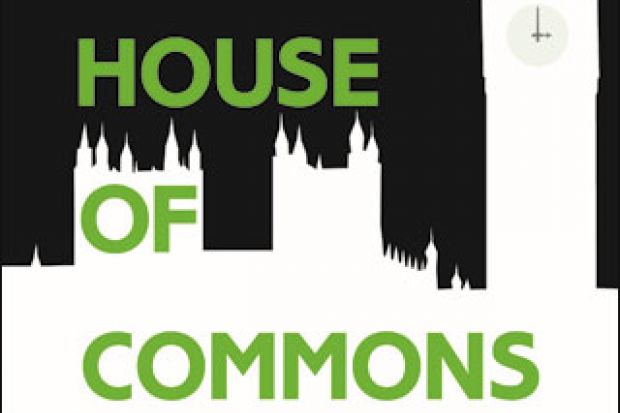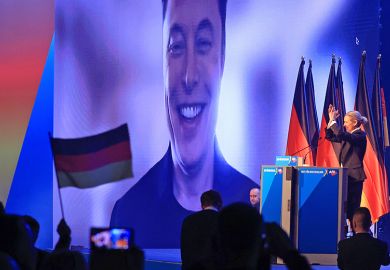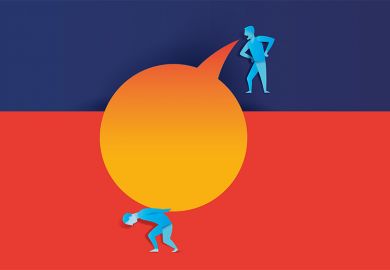In this first-ever anthropological account of the secrets of the Commons, drawing on Emma Crewe’s first-person interviews with politicians, we learn that one MP won her seat by using modern electioneering methods to target tens of thousands of potential voters and discern their intentions. She then sent out 1 million pieces of election literature with messages tailored to appeal to voters’ individual prejudices – thereby, in Crewe’s view, stealing the seat. If this claim is true, that is 40 pieces of literature sent for every vote won, and it must have cost a fortune in printing alone. But it resulted in Nicola Blackwood, the Conservative MP for Oxford West and Abingdon, taking that seat in 2010 by just 176 votes. This anthropological tin-opener lifts the lid on Parliament and asks what drives people like Blackwood to so desperately want to be an MP.
For MPs and prospective MPs, elections are intoxicating. For them, says Crewe, politics is like sport with ideas; it turns their status dial up to 11. According to her interviewees, newly elected members can arrive in the House on their first day to find 5,000 letters from constituents and others that they need to deal with before they are able to begin to think of appointing their “staff”.
Of course, some of the MPs Crewe interviewed may have been a bit prone to exaggeration, and sometimes innumerate. However, she is absolutely on the button in her vivid descriptions of how poor most male MPs are at listening to their constituents’ often harrowing life stories; and apposite, too, in describing the effects of MPs’ career choice on their partners and children. According to Crewe, just over a quarter of female MPs and only 45 per cent of male MPs are raising children, although they do mostly have partners.
In the accounts presented here, MPs are earnest, bewildered, often well meaning but also prone to feeling as if they are being pulled apart by wild horses. Crewe, who occasionally gives the impression of “going native”, reveals one very telling fact and then makes nothing of it: a majority of current MPs were earning more than their current MP’s salary before they were first elected. This matters.
MPs are paid £67,060. On top of that they receive expenses to cover the cost of living in London and commuting to work. According to the Institute of Fiscal Studies calculator, a single adult earning that amount and paying no council tax does better than 98 per cent of the UK population. In other words, given their housing allowances, MPs are in the best-off 2 per cent of the UK population, and a majority were in the best-off 1 per cent before they became MPs.
Presumably most of that “1 per cent” majority now represent the party of the rich? Crewe does not say, but she does point out that Tory MPs regularly ski and shoot, consider their children “too bright for state school”, routinely look down on their constituents (at the extreme end, one described a constituent in a tweet as a “disingenuous, manipulative, illiberal little shit”) and – arguably worse – assume that their constituents are susceptible to insincere praise. For example, Jacob Rees-Mogg, the MP best known for canvassing with his nanny, described his Somerset constituents as “the most intelligent people in the world” – just for electing him.
How much does any of this matter? Had the voters of Oxford West and Abingdon not been swayed by those 1 million pieces of precision-targeted literature in 2010 and instead returned their sitting Liberal Democrat MP, who in the event came second, their representative would still have been a member of the coalition government irrespective of their wishes. Or maybe, just maybe, if a mere 89 of those “stolen” votes had not shifted from Lib Dem to Conservative, that MP would have stayed in office, the Lib Dems would have kept to their election promise of not raising tuition fees, and a Labour-Lib Dem coalition might have emerged. We will never know. We just know that votes can still be stolen.
Crewe, who began her look at UK politics by studying the House of Lords, has been working her way down the ladder. Perhaps a future study could look lower still and consider MPs’ spouses, children, agents, researchers, clerks, officers of the Crown, assistants, muses, boyfriends and girlfriends, interns, secretaries, exes and bits-on-the-side, as well as those who clean the House of Commons, the builders, caterers, waiters and back-scratchers, the police and all the other plebs that make it possible for MPs to find their lives…so very difficult, and yet so very rewarding.
The House of Commons: An Anthropology of MPs at Work
By Emma Crewe
Bloomsbury, 246pp, £50.00 and £16.99
ISBN 9781474234580, 4573 and 4597 (e-book)
Published 23 April 2015
Register to continue
Why register?
- Registration is free and only takes a moment
- Once registered, you can read 3 articles a month
- Sign up for our newsletter
Subscribe
Or subscribe for unlimited access to:
- Unlimited access to news, views, insights & reviews
- Digital editions
- Digital access to THE’s university and college rankings analysis
Already registered or a current subscriber? Login





